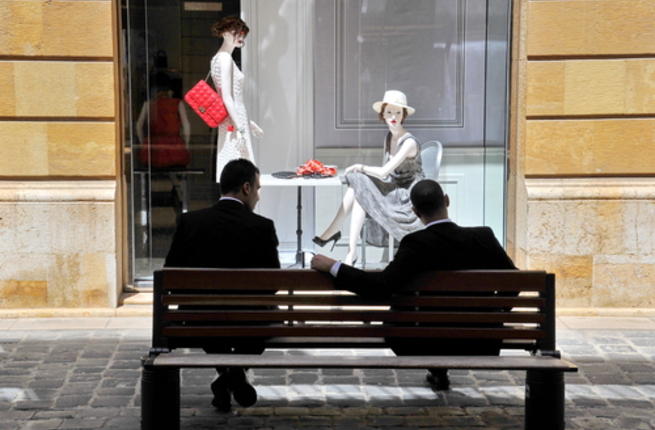Lebanon’s retailers wait in vain for a post-election boost

Despite the election of a Lebanese president and the formation of a government, stores in Lebanon have yet to witnessed a significant improvement in sales. “The government was supposed to be formed one and half months ago but this was not the case and now it is too late to witness any improvement in sales activity,†said Nicolas Chammas, head of Beirut Traders Association.
“Materially speaking we are left with nine days until the end of the year which is less than one-third of December. This period is critical but, in order to get started, we need some time,†Chammas added.
The presidential vacuum over the past couple of years and the absence of government weighed heavily on the economy and many stores in the country closed down to put an end to their financial losses.
However, Chammas said that 2017 is expected to be better than the previous year as the presidential vacuum has ended and the political scene will be in order. “We might be able to witness a growth rate of 4 percent in 2017 compared to only 1 percent in 2016,†he said.
Chammas noted that people need to see institutional reform is happening and real change taking place following the formation of the government because the latter is responsible for running the country and stimulating the economy.
“The change in the consumers’ mood is a prerequisite,†he said.
BTA head said that stores everywhere, including in malls, are witnessing low sales this festive season due to low purchasing power. “When you go to a mall, you see a huge number of people but in fact, the number of people who enter shops is less than before,†he said.
“Also, the number of people who actually spend money in stores are less than before and even the amount of money spent by shoppers this year has dropped compared to previous years,†he added.
Chammas said that people who go to shopping malls are more than those who visit shopping areas such as Hamra because malls have restaurants and movie theaters.
“People find it easier to go to such places because they are considered one-stop shops,†he said.
Chammas’ remarks were reiterated by owners of shops in Hamra who reported slow sales activity in December and in previous months as well. “Our sales were very slow this year because there are no tourists in the country,†said Mohammad Yamani, owner of Dada clothing shop in Hamra.
“The only foreigners coming to our stores are Iraqis who visit Lebanon for medical treatment and they do not spend much on clothes,†he added.
Yamani believes that due to the cold weather people prefer to go to malls rather than walk in Hamra under the rain.
“But I am not even sure that stores in malls are selling well because of the absence in tourists,†he said.
Likewise, Mosbah Rahhal, owner of Napioni, another clothing store for men in Hamra, said that his sales had dropped remarkably compared to last year despite a 70-percent discount sign on his shop window.
“We have been on sale for a month now but the activity is still too slow,†he said. “Sometimes we do not even cover our expenses and if this store was not mine and I was paying a high rent, I would have closed down long ago,†he said.
Rahhal added that tourists were absent and his clients now bought only one piece whereas in the past they would buy four or five items.
Ali Rahhal, owner of Virgili, said that if it wasn’t for Iraqis Hamra shops would have gone bankrupt. “We used to rely enormously on people from the Gulf who are absent nowadays,†he said.
He added that it was mostly hotels and restaurants that were benefiting from the arrival of tourists from Iraq, Egypt, Jordan and expatriates.
For Akram Suleiman, owner of Cavio clothing store, this year was worse than the year before. “I also hope that next year would be similar to 2016 and not even worse,†he said. “The problem is that there are no tourists in Lebanon and the ones who are visiting are coming for medical purposes mostly.â€
